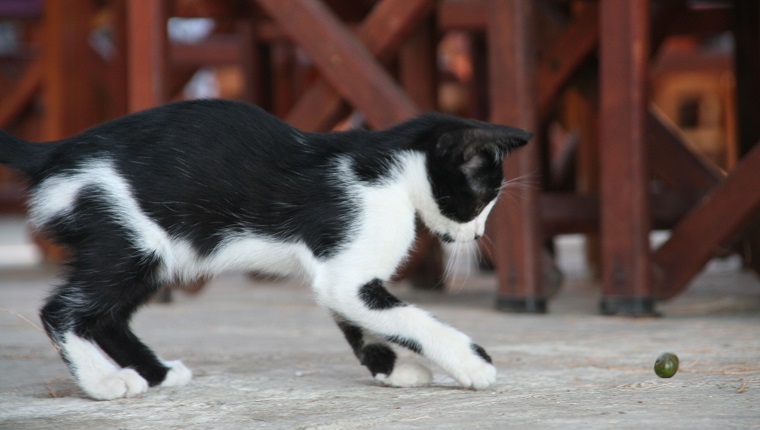Can cats eat olives? You might have had this thought while chowing down on some olives as a healthy snack or picking pizza toppings. If humans can eat olives, can cats safely eat them too?
There is no short yes or no answer as to whether cats can eat olives. Technically, olives aren’t toxic or poisonous to cats, but there are some health and safety issues to consider if you’re thinking of sharing them with your cat.
As always, you must ask your regular vet before going ahead and sharing any human food with your beloved feline, including olives. Here’s what you need to know about olives and cats.
When Are Olives Okay For Cats To Eat?
Olives are not a poisonous food for cats. They contain some vitamins, plus they’re often touted as being a key part of a healthy Mediterranean diet for humans.
If you’re considering feeding olives to your cat, make sure to take precautions. First of all, only serve a very small amount of olives to your cat — one olive should really suffice as a snack.
Secondly, make sure you’re only serving plain olives that have not been marinated in extra herbs and spices.
Additionally, watch out for the sodium content in any olives you’re feeding to your cat.
Lastly, the pits in olives can become choking hazards, so remove the pit before serving any olives to your cat. Ideally, also chop up the olives before serving to make them easier to eat and digest.
When Are Olives Bad For Cats?

Cats are obligate carnivores, so the majority of their diet should come from meat.
Olives aren’t really of much nutritional use to a cat. They’re also high in fat, and feline obesity can be a series issue for kitties. Additionally, many olives are marinated in spices and contain high amounts of sodium.
While olives are not poisonous to cats, the potential drawbacks mean that they’re really not a food to regularly serve to your kitty.
Do you live with a cat who likes to sneak in a taste of your olives? What healthier snacks do you feed your feline? Tell us all about it in the comments section below!




